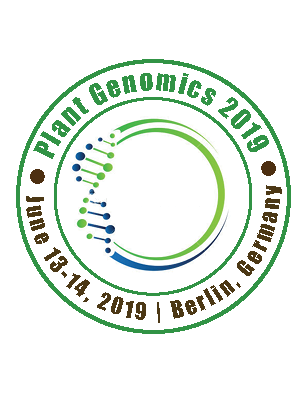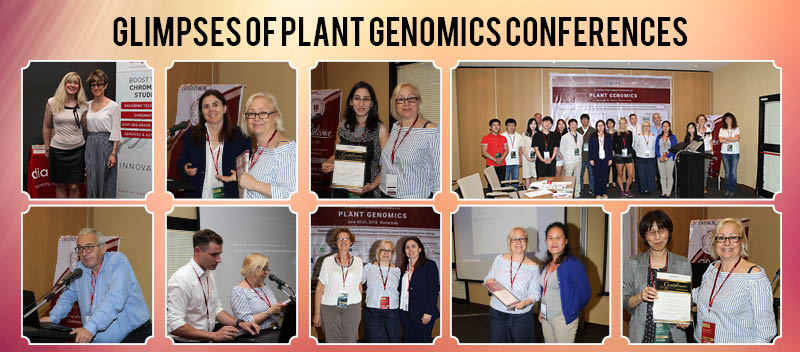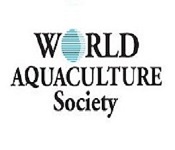Plant Genomics 2019
About Conference
Theme- New Genome Based Breeding and Genome Evolution Technologies on Different Scales
EuroSciCon invites all the participants from all over the world to attend “5th Edition of International Conference on Plant Genomics” during Jun 13-14, 2019 at Berlin, Germany which includes prompt Keynote presentations, Oral talks (Speaker forum and Young research forum), Poster presentations, Workshops and Exhibitions.
Plant Genomics 2019 is a global overview the Theme: "New Genome Based Breeding and Genome Evolution Technologies on Different Scales" which brings together persons particularly interested in the genome of Plant Science and Agriculture Science, both raw and finished; to foster programs of general papers and symposia on special topics dealing with this field of genomics; to promote such other activities as will stimulate activity in and emphasize the importance of research in genome and gene editing. Our conference provides quality, timely Symposium at International Conference on Plant Genomics.
Goals:
Develop focused and timely programs, products and services that engage those involved in Plant Science and Plant Genome, Agriculture Science and related fields. Enhance communication and market our programs, products, and services more effectively. Expand global impact by developing the infrastructure to deliver technical programming for targeted international audiences.
About Berlin
Built on sand on around the banks of the river Spree, Berlin has been one of Europe’s most influential economic, cultural and political centers - for better or worse - since its origins as a trading post in the 13th century. It was capital of both the Prussian and the German Empire until World War I uprooted the Hohenzollern dynasty, which had ruled since the 15th Century When people think of Berlin, the first thing that usually comes to mind is its most famous landmark the Brandenburg Gate. For decades a symbol of division, the monument has always been the beating heart of a major city bursting with ideas, inspiration, art, culture and creativity. Highlights in the western parts of Berlin include the Kurfürstendamm, as elegant a shopping street as you’ll find anywhere, the Kaufhaus des Westens department store (better known as KaDeWe), on-trend boutiques and exclusive galleries, as well as beautiful residential streets and, of course, Berlin’s famous nightlife. And speaking of nightlife, no trip to Berlin would be complete without an evening at Friedrichstadt Palast, Germany’s leading variety theatre. With the current production, SHOW ME, the Palast is said to have mounted the most expensive and dazzling stage show of all time. This Berlin spectacle is the very height of glamour – an explosion of light, colours, costumes and special effects. The cosmopolitan vibe also permeates the government district, which spreads out to the east from Brandenburg Gate and from the neighbouring Reichstag. There’s a sense of peace and freedom in the air here – in stark contrast to the days when Berlin was responsible for unthinkable crimes. Berlin’s population is 3.4 million down from 4.5 million before WW2. It is a vast city, extending over 889 square kilometers. Its twelve bezirke (boroughs) are Mitte, Friedrichshain-Kreuzberg, Pankow, Charlottenburg-Wilmersdorf, Spandau, Steglitz-Zehlendorf, Tempelhof-Schoneberg, Neukolln, Treptow-Kopenick, Marzahn-Hellersdorf, Lichtenberg, Reinickendorf, although many Berliners still use old names and districts for purposes of orientation.
Opportunities for Conference Attendees
For Researchers &Faculty:
Speaker Presentations
Poster Display
Symposium hosting
Workshop organizing
For Universities, Associations & Societies:
Association Partnering
Collaboration proposals
Academic Partnering
Group Participation
For Students & Research Scholars:
Poster Competition (Winner will get Best Poster Award)
Young Researcher Forum (YRF Award to the best presenter)
Student Attendee
Group registrations
For Business Delegates:
Speaker Presentations
Symposium hosting
Book Launch event
Networking opportunities
Audience participation
For Companies:
Exhibitor and Vendor booths
Sponsorships opportunities
Product launch
Workshop organizing
Scientific Partnering
Marketing and Networking with clients
Sessions & Tracks
Track 01: Plant Functional Genomics and Biotechnology
Utilitarian Genomics has been built up to examine the structure and capacity of atomic genome in higher plants. The improvement and utilize biotechnology and genomic instruments in financially vital plant species, for example, timberland and natural product species, grains, vegetables and therapeutic plants. Actual activities are harmonized to explore genomic tools, meant for sample, sequencing, transcriptomics, proteomics, and atomic markers, to differentiate supervisors, potentials and structures in regulator of protection from vermin, ailments and for resilience to water shortfall, saltiness and temperature push. Stranded by functioning, normal interaction and biotechnology campaigns, we recognize new plant items, enhance biomass creation, and furthermore bolster reproducing programs. The investigation of bioactive mixes and potential wellbeing valuable impacts of sustenance metabolites is additionally performed.
- Cereal Genomics
- Plant Science Meeting
- Plant genomics scope in Europe
- Micro propagation in Plants
- Plant Tissue Culture and Biotechnology
- Sequencing
- Transcriptomics
- Proteomics
- Molecular marker development / Marker assisted selection
- Drought Tolerance and Frost Tolerance
- Heat Tolerance
- Hybrid wheat and Phenotyping
- Plant Science Meeting, Paris, Plant Biology Conferences
- Plant Transformation
- Salinity Tolerance
- Structural Biology
- Plant Genomic Case Studies
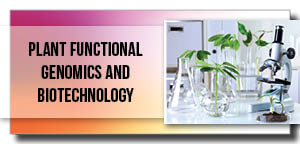
Track 02: Plant Genome Engineering Strategies and Developments
Current nocturnal method in genome scheming receipts complete the conceivable towards surely regulate DNA activities in plant cells, providing predominantly manufactured plants through features of intrigue. Superiority concentrating on expertise goes on the transmission approach intended for both sequence nucleases and repair formats, to plant cells.
- Improving gene editing technology, enzymes, and methods
- Genome editing applications using new techniques
- Genome editing and the latest EU policies
- Genome / DNA assembly for editing
- Plant Genetic Engineering and GM crops
- Plant Gene Editing for the Consumer
- Plant Genomics its Applications in Cerals
- Plant Genome Engineering and Plant genetic diversity
- Plant Biology Conferences
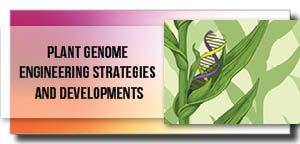
Track 03: Plant Genetics and Epigenetics
Plants developed stage by arrange talented hereditary and epigenetic administrative foundations to react quickly to frightful natural circumstances, for instance, warm, cold, drought, and pathogen illnesses. Precisely warm to a great degree impacts plant development and upgrade, unwelcoming quality and every day temperament, and implies an unaffected risk to the all-inclusive sustenance source. Transgenes radiate an impression of being particularly fragile to epigenetic assortment which can provoke transgene quieting, i.e. the whole or deficient inactivation of transgene verbalization. Plants are ideal model structures to consider the effect of changing normal conditions on epigenetic outlines. We are especially captivated to perceive how certain genomic areas push toward getting to be centers for epigenetic alteration and how normal weight impacts epigenetic quality control. Our associated work investigates how transgene calming can be balanced and how epigenetic assortment can be manhandled for novel raising strategies.
- miRNA and RNA analysis
- Genetic conferences
- Plant breeding methods
- Pathogen detection and analysis
- Epigenetics and DNA methylation studies
- Disease and stress resistance
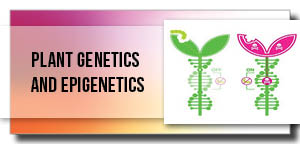
Track 04: Agricultural Genomics and Cereal Genomics
The innovation in agricultural genomics will continue its contribution in sustainable productivity and offers solution to challenges in facing global population. Functional genomics in the field of agriculture helps us to understand the relationship between phenotype and genotype of plants in global scale. The increase of investment in agriculture is mainly due to the use of nitrogen fertilizer because it directly affects yield as a large amount of nitrogen is being wasted up and not absorbed by the plants. Improving efficiency of nitrogen usage by genetic improvement is necessary for the agriculturaldevelopment. Agricultural genomics involves various types of breeding techniques like Marker-Assisted breeding, Conventional Breeding etc. to improve the yield of crops.
Cereals or crops belongs to monocot family and are cultivated globally as they provide huge amount of energy, therefore it is known as staple crops. Development and use of all kinds of molecular markers use and construction of molecular maps, study of population genetics and domestication of cereals using tools of genomics research. The gene expression databases play a vital role in extracting, organizing and interpreting information and build a connection between the genotype and phenotype of plants.
- Agricultural Meteorology
- Seasons and Systems of Farming
- Irrigation and Water Management
- Harvesting and Post-harvest Technology
- Agronomy of Field Crops and Biofuel Plants
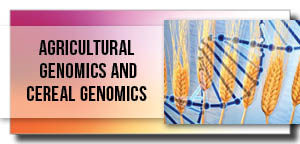
Track 05: Plant Breeding
Plant reproduction is the exploration of augmenting constructive hereditary qualities in plants that individuals develop. It comprises of diagnostic systems that enable specialists to make and select plants that are reliably exceptional in wanted characteristics. The prime goal in plant replicating is to expand the transmissible foundation of professional edit classes to obey towards fluctuating requirements on yield and excellence. Dimensions accepts a significant portion in current day plant replicating. A traditional quantitative hereditary model composes the phenotype because of hereditary, natural and genotype by condition association impacts. In the genomic period, this recognized model consumes remained increased and summed up. Straight merged copies supposed an imperative part in traditional quantitative hereditary qualities and still do as such in present day.
- Plant Molecular Assisted Breeding
- Marker Development
- Dubai Plant Science congress
- Genetic Modification
- Mutagenesis in Plant Breeding
- Mapping of Genes
- Polyploidy in Plant Breeding
- Signal Transduction
- QTL Analysis
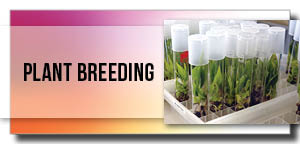
Track 06: Plant Nutritional Genomics
Plant Nutritious Genomics recoils a summary of plant appropriate genomics, which remains categorized as the relationship between a plant's genome and its motivating possessions. The astute assurance and rising of varieties of items will accept a gigantic part in meeting these objectives, and advances in plant healthy genomics will allow the greatest limit of yield decision and repeating systems to be made sense of it. Understanding plant sustenance and applying this learning is critical to growing product age to meet creating demands for sustenance. Genotypicapproaches, in perspective of collect assurance and recreating have starting late benefit by mechanical advances, including the satisfaction of plant genome sequencing wanders.
- Green nanotechnology
- Agriculture Nano toxicology
- Uptake and Translocation of Nanoparticles in plants
- Effects of Nanoparticles on plant growth and development
- Transgenic plants producing vaccines
- Vaccines given to plants for a healthy vegetation
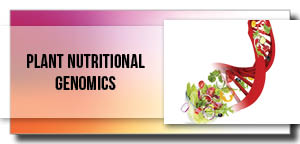
Track 07: Plant Signaling and Chemical Signaling
Plant signaling is the capacity of plants to detect and react to the earth to change their morphology, physiology and phenotype in like manner. Different subdivisions, for example, plant physiology, nature and atomic science are used to examine the capacities of the plant. Plants respond to chemicals, gravity, light, dampness, contaminations, temperature, oxygen and carbon dioxide focuses, parasite pervasion, malady, physical disturbance, sound and touch.
Many chemicals are critical for plant growth and development and in integrating various stress signals and controlling downstream stress responses by modulating gene expression machinery and regulating various pumps and biochemical reactions. Plant hormones are responsible for chemical signaling in plants. Auxin is the hormone responsible for phototropism in plants. The drought signaling in plants is done by Abscisic acid during the time when there is stress on water availability. Calcium signaling is one of the very important intracellular second messenger molecules involved in many signal transduction pathways in plants. Nitric Oxide signaling is also an important chemical signaling adopted by plants for efficient utilization of Nitrogen from the soil.
- Energy Conversion and Metabolic Regulation in Chloroplasts
- Bio-energy Conversion
- Signal Transduction in Plants
- Dissecting Mechanism in Crop Plants
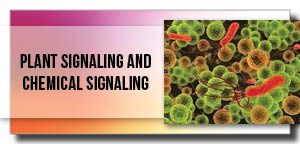
Track 08: Genome Sequencing
Genome Sequencing is the way toward deciding the total DNA grouping of a living being's genome at a solitary time. This involves sequencing the greater part of a living being's chromosomal DNA and in addition DNA contained in the mitochondria and, for plants, in the chloroplast. It is essentially making sense of the request of DNA nucleotides, or bases, in a genome the request of As, Cs, Gs, and Ts that make up a living being's DNA. Plant Genomics experts take prompt grasped new intentions, developments and ways to agreement through produce genome, transcriptomic and epigenomedatasets for typical and produce types that consume acceptable profound inferences into plant science. At the point when an animal groups' reference genome is accessible, entire genome resequencing is a proficient approach for finding qualities, SNPs, and basic variations, while at the same time deciding genotypes. Information after these investigations will plug in the holes that happen in the hereditary maps of frequent plant species, enhancing plant repeating and optimal, and allowing authoritative absolute genomic researches inside and slanting over species and couple of associations integrates.
- Protein Engineering
- Drug Development and design
- Single nucleotide polymorphisms
- Next-Gene Sequencing
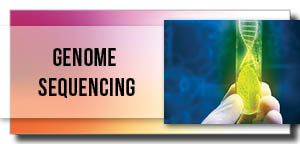
Track 09: Plant Pathology
The science that arrangements with the investigation of infections of plants, their improvement and control are called Plant Pathology. Plant Pathology is categorized as the examination of the lifetime procedures and environmental circumstances that cause infection in plants, the arrangements comprehensive which this materializes, the influences between these causal specialists and the plant (impacts on plant development, yield and quality), and the techniques for overseeing or controlling plant sickness. Plant infections are caused by biotic specialists like organisms, microorganisms, actinomycetes, Mycoplasma, infections, nematodes, and blooming parasites or by abiotic like troublesome ecological conditions or nourishing inadequacies. Investigation of plant pathology includes the study of Microbiology, Mycology, Nematology, protozoology, phycology, environmental mechanisms.
- Insect Plant Interactions
- Microbial Genomics
- Plant Environment Interaction
- Fungal Plant Interaction
- Nutrition Improvement
- Plant Immune Response
- Plant Science
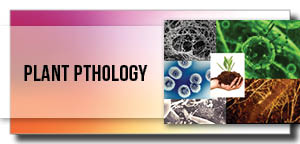
Track 10: Crop Improvement and Plant Hormones
Crop Improvement involves in the engineering of plants done for the benefit of humanity. It can be achieved by three steps- Selection, Isolation and Breeding. By selecting and isolating plants for cultivation, the early farmers were influencing which plants would cross-pollinate. Breeding was done in such a way that two plants are selected, and they are crossed to produce offspring having the desired traits of both parents. Gene editing is the insertion, deletion or replacement of DNA at a specific site in the genome of an organism or cell which can be done with the help of molecular scissors. Genetically Modified crops have been developed to resist abiotic stresses, such as extreme temperature, drought or salinity, and biotic stresses, such as pathogens, insects etc. and to increase the crop yield.
Plant Hormones are chemical messengers that are made in one place in the plant body and deliver their message in a totally different place in the plant body. There are many hormones such as Auxin, Gibberellin, Cytokinin, Ethylene and Abscisic Acid by which each hormone is responsible for each function in plants. The drought signaling in plants is done by Abscisic acid during the time when there is stress on water availability. These hormones found only in small concentration but plays a vital role in plant growth, metabolism, aging etc. and study of these hormones are necessary to know well about plants.
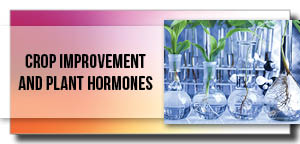
Track 11: Plant Science
Plant Science is placed around the genetic and cell switch of plant expansion and enhancement in establish classes, crops and their wild relations employing genomics, proteomics, backgrounds science and boosted bright microscopy. Plant Science concentration is projected to give replacements an understanding of in what way plants effort, climbing at the atom to the biological system and how this capacity supports the execution of plants in characteristic and farming environments. Plant Science is a significant focal point of reasonable research undertaking at ANU, distribution over all from the dimensions, vitality, associations, and hereditary qualities and demonstrating of plants and their surroundings. In this specializations understudy are presented to bleeding edge disciplinary research and analysts, which fabricates commitment, comprehension and examination of ebb and flow issues in plant science. The specialization will help understudies trying to seek after expert and graduate degrees in plant sciences and will give a strong foundation to understudies seeking after vocation objectives in plant research center science, and open and natural strategy.
- Medicinal and Aromatic Plant Sciences
- Biotechnology meetings
- Soil Science and Soil-Plant Nutrition
- Agricultural Science
- Plant Morphology and Plant Metabolism
- Plant Physiology and Biochemistry
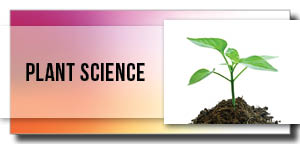
Track 12: Horticulture Sciences
Horticulture Sciences is the branch of agriculture that deals with the art, science, technology, and business of vegetable garden plant growing. Horticulture is the science and art of producing, improving, marketing, and using fruits, vegetables, flowers, and ornamental plants. It differs from botany and other plant sciences in that horticulture incorporates both science and aesthetics.
- Floriculture Management
- Greenhouse Management
- Plant Nursery Operations
- Ornamental Horticulture
- Turf Management
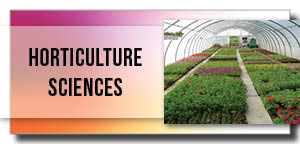
Track 13: Plant Proteomics
Plant Proteomics is worried about the whole supplement of proteins of plants including the changes made to an arrangement of proteins. Proteomics is a top to bottom investigation of a proteome, including data on protein and its adjustments and varieties. Proteomics works with the cooperating accomplices and individuals related with it in a consecutive system. Plant Proteomics features the quick advance in this field in plants, with accentuation on late work in demonstrate plant species, subcellular organelles, and parts of the vegetation cycle, for example, flagging, multiplication and stress physiology.
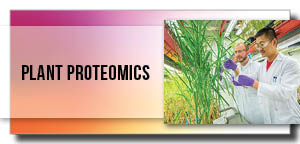
Track 14: Bioinformatics and Data Analysis
The plant co-articulation is alternative web-based catalogue used for plant superiority investigation A common co-communicated class can generate frequent activities of co-articulation material that hold numerous potentials of enthusiasm for improvement investigation. Likewise, co-communicated qualities can be distinguished and inventoried as far as near genomics by utilizing the 'Co-articulation quality analyze' highlight. This examination will help translate exploratory information and decide if there is a typical term to those qualities.
- Bioinformatics analysis and challenges
- Use of genomic data for candidate genes
- Identifying novel functional genes
- Application of bioinformatics software for DNA / RNA analysis
- Computational systems for Modelling and visualization of information
- Cloud computing and storage solutions
- Molecular biology meetings
- Industry applications of the latest genomic technologies
- Collaborations and how they can drive plant research
- Insight into regulatory challenges

Track 15: Genetically Modified Organisms
A Genetically Modified Organism is a plant, creature, microorganism or other life form whose hereditary cosmetics has been adjusted utilizing recombinant DNA techniques (likewise called quality grafting), quality change or transgenic innovation. This temperately novel science makes unpredictable mergers of plant, creature, bacterial and viral potentials that don't occur in landscape or through predictable hybridizing procedures. GMO is any living being whose hereditary material has been changed utilizing hereditary designing systems (i.e., a hereditarily built living being). GMOs remain employed to distribute frequent drugs and genetically altered sustenance’s and is commonly applied as a portion of reasonable investigation and the formation of dissimilar crops.
- Genetically Modified Food
- Genetically Modified Crop
- Plant Science
- GMO and Environment Interaction
- Genetic Engineering
- Transgenic Plants

Track 16: Molecular Breeding
Atomic rearing is the utilization of sub-atomicscience devices, regularly in plant reproducing and creature reproducing. Atomic rearing might be characterized in a wide sense as the utilization of hereditary control performed at DNA sub-atomic levels to enhance characters of enthusiasm for plants and creatures, including hereditary designing or quality control, sub-atomic marker-helped determination, genomic choice, and so forth. This term is utilized to depict a few present days rearing procedures, including marker-helped choice (MAS), marker-helped backcrossing (MABC), marker-helped intermittent determination (MARS), and vast choice (GWS) or genomic choice (GS). Plant mutagenesis is quickly transitioning in the outcome of ongoing improvements in high-determination sub-atomic and biochemical methods. By combining the high variability of mutagenized populations with original screening procedures, potentials that are moderately tough to differentiate by normal background are currently existence twisted and described at the atomic level.
- Molecular Marker
- Mapping of Genes
- Mutagenesis in Plant Breeding
- Polyploidy in Plant Breeding
- Molecular marker development / Marker assisted selection
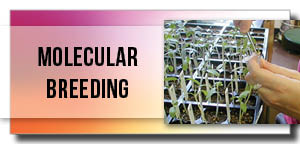
Track 17: Plant Synthetic Biology and Plant Transcriptome
Plant manufactured science is a developing field that consolidates building standards with plant science toward the outline and creation of new gadgets. This rising field should assume an essential part in future farming for conventional harvest change, yet additionally in empowering novel bio creation in plants. Comment is the way toward recognizing and portraying the areas of natural enthusiasm inside a genome. The area and structure of protein-coding qualities is the most widely recognized type of comment, however different sorts of critical succession explanation incorporate the distinguishing proof of noncoding RNAs (tRNAs, rRNAs, snoRNAs, miRNAs, siRNAs), tedious groupings, for example, transposable components, and the area of hereditary markers. Utilitarian explanation depicts the organic setting of quality arrangements. All genome explanation is performed utilizing semi-computerized computational pipelines and is liable to some level of understanding and mistake. In this manner, specialists must comprehend the techniques used to make explanation with a specific end goal to evaluate the nature of that comment.
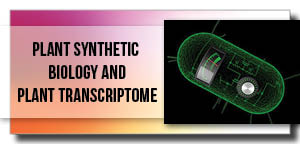
Track 18: Plant Nanotechnology
The agronomic use of nanotechnology in plants (Phyto-nanotechnology) can probably regulate normal plant generation backgrounds, taking into interpretation the skillful onset of agrochemicals (e.g., composts, pesticides, and herbicides) and target-particular transference of biomolecules (e.g., nucleotides, proteins, and activators). An improved understanding of the networks among nanoparticles (NPs) and plant reactions, including their take-up, limitation, and action, could alter edit creation through expanded malady opposition, supplement use, and harvest yield. Nano agribusiness includes the work of Nano particles in farming these particles will give some valuable impacts to crops.
The rise of nanotechnology and the improvement of new Nano gadgets and Nanomaterial are open potential novel applications in horticulture and biotechnology. Nanoparticles are resources that are adequately diminutive to fall intimate the Nano metric variety, by not any a smaller amount than one of their dimensions existence not as much as a couple of hundred nanometers. These materials would discharge pesticides or manures at a time and focused on area. Nanoparticles categorized to agrochemicals or dissimilar materials might moderate the destruction toward added plant tissuesand the number of artificial complexes settled into nature.
- Green Nanotechnology
- Plant Nano toxicology
- Agriculture Nanotechnology
- Uptake and Translocation of Nanoparticles in plants
- Effects of Nanoparticles on plant growth and development
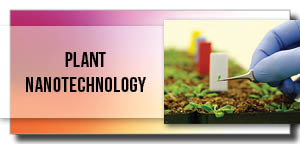
Track 19: Plant Tissue Culture
Plant tissue culture is the strategy of developing and keeping up plant cells, tissues or organs particularly on simulated medium in appropriate holders under controlled ecological conditions. Any piece of a plant is taken out which is known as explant and developed in a test tube under sterile conditions.
Cell division from explant frames callus which can be developed into another new plant. Plantlets can be recovered by tissue refined which includes different strategies, for example, immunization, hatching, recovery and solidifying. Transgenic plants can likewise be built by tissue refined methods. Micro propagation is an incorporated procedure which likewise includes in recovery of plants by different techniques, for example, Multiplication by Adventitious Shoots, Axillary Buds and Apical Shoots, Multiplication Through Callus Culture, Organogenesis and Somatic Embryogenesis.
- Micro propagation in plants
- Applications of Plant Tissue Culture
- Callus and suspension Culture
- Embryo Culture
- Regeneration of Plantlets
- Somatic Hybridization
- Resistance to weedicides
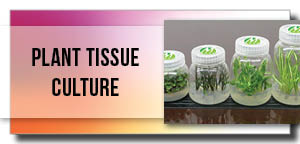
Track 20: Plant Metabolism and Regulation
Plant metabolism is defined as the complex of chemical and physical events of respiration, photosynthesis, and the synthesis and degradation of organic compounds. These metabolic pathways allow the organism to perform all the normal life processes such as growth and maintenance of cell structures, repair damage, reproduction and respond to environment. The enzymatic activity of plants is controlled by allosteric sites by which modulator or effectors binds to it. Biosynthesis of enzyme protein is done by translation and translocation level. Crassulacean (CAM) is a carbon fixation pathway exists in succulents such as cacti and other desert plants as an adaptation to arid conditions.
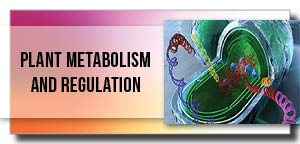
Track 21: Arabidopsis
Arabidopsis is a variety in the family Brassicaceae. They are little blooming plants identified with cabbage and mustard. This variety is of incredible enthusiasm since it contains thali cress (Arabidopsis thaliana), one of the model living beings utilized for examining plant science and the primary plant to have its whole genome sequenced. Changes in thali cress are effortlessly watched, making it an exceptionally helpful model.
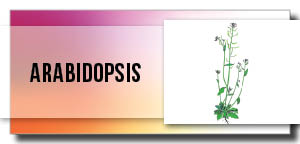
Track 22: Speciation & Origin of Genomes
Genomes have evolved in nature and all populations in the past as well as in modern times have been evolving. There are many ways of origin of species in nature and the parental genome is improved and altered. Some of these natural mechanisms include genetic mutations, polyploidy, particularly allopolyploidy (natural hybridizations), chromosomal aberrations and related many inherent molecular mechanisms operative within individual(s). Many of these events have sometimes resulted in “genomic reshuffle” causing expressions of those DNA sequences which were once present in the distant past geological history (millions of years ago). Several such examples are prevalent among plants and animals. Additionally, evolutionary mechanisms have evolved such organisms which are either connecting links between groups and or are unique amalgamated genomes such as Platypus among animals. In the past few decades, some rare plants have shown the presence of a few DNA stretches matching the DNA sequences on the human chromosomes. Papers dealing with any of these themes will be welcome for this session
- Speciation Genomics
- Divergence Hitchhiking
- Genome Hitchhiking
- Gene Flow
- Genome Scan
- Reproductive Isolation
- Next Generation Sequencing
- Gene Expression
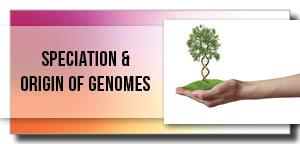
Track 23: Comparative Genomics of extinct & extant groups
Modern DNA technological approaches have progressed in such a way that we have been able to find homology among organisms and trace for evolutionary mechanisms even for a fate of a few nucleotides and also estimate the path and time of evolutionary diversions among various organisms. Not only from anthropological point of view, but also from homology of DNA sequences we have proved that Homo sapiens arose after hybridization in between two species of Homo. Furthermore, detailed investigations on DNA isolated from the fossil bones (fossilized bone marrow) biologists and biochemists have established modes of origin of Neanderthal and other Homo species including Homo sapiens. Among plants, DNA samples obtained from many fern genera and also among grasses, evolutionary biologists have offered new pathways for the emergence of new and related genera and species. Papers dealing with the fossil group and intimately related extant genera or species would be welcome for this session.
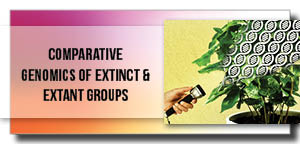
Learn More
Top plant Genomics Universities
Europe Plant Genomics Universities
University of California—Davis | Cornell University | Wageningen University and Research Center | Harvard University | Duke University | Ghent University | University of Florida | University of Cambridge | Michigan State University| University of Copenhagen | Swedish University of Agricultural Sciences | University of Minnesota--Twin Cities | University of Wisconsin—Madison| University of British Columbia | University of São Paulo | University of California--San Diego | Iowa State University| University of Arizona |University of Montpellier| Purdue University--West Lafayette | Yale University | Oregon State University | Stanford University| North Carolina State University -Raleigh |University of Illinois--Urbana-Champaign| University of Washington | Utrecht University | University of Helsinki | University of Munich| Aarhus University | University of Freiburg
USA Plant Genomics Universities
University of Texas—Austin | Kansas State University | University of Missouri | University of Sheffield | University of Aberdeen | University of Leeds | Princeton University | University of Aix-Marseille | University of Bristol | University of Nottingham | Lund University | Technical University of Denmark | Charles University in Prague | University of Bonn | University of Oslo | Virginia Tech | State University of New Jersey--New Brunswick | University of Paris-Sud | University of Groningen | University of Glasgow | University of Pennsylvania | University of Bern | University of St. Andrews| University of East Anglia| University of Padua | University of North Carolina--Chapel Hill | University of Liverpool| University of Nebraska—Lincoln| University of Hamburg| University of Tartu| University of Lisbon| University of Manchester
Asia Plant Genomics Universities
University of Milan | Vita-Salute San Raffaele University | University of Bologna | University of Rome Tor Vergara | Sapienza University of Rome | University of East Anglia UEA | University of Tennessee | University of Saskatchewan | Montana State University |Pennsylvania State University Milton S Hershey Medical Center |Purdue University |University of Saskatchewan St. Peter's College| University Putra Malaysia |University of Wisconsin – Madison| University of Oxford |University of California, Berkeley |National University of Singapore | Los Angeles |University of California, San Francisco| Kyoto University |University of Toronto |Columbia University| University of Tokyo| Johns Hopkins University |University of Guelph| University of Reading| China Agricultural University |University of Wisconsin-Madison
Africa Plant Genomics Universities
The University of Melbourne | University of Western Australia |Warsaw University of Life Sciences – SGGW |University of Natural Resources and Applied Life Sciences Vienna| University of Minnesota| Lincoln University |University of Nebraska-Lincoln |The University of Sydney| University of Georgia |Washington State University| Bangor University| Chiang Mai University| s |Hebrew University of Jerusalem| Hokkaido University |James Cook University |Korea University| Nagoya University |Nanjing Agricultural University |Northwest Agriculture and Forestry University |Rutgers University - New Brunswick |Seoul National University |Stellenbosch University |Tokyo University of Agriculture and Technology |Zhejiang University| Aristotle University of Thessaloniki| Agricultural University |Kyushu University |Laval University
Plant Science Conferences |Plant Genomics Conferences | Plant Physiology Conferences | Plant Biology Conferences | Plant Biotechnology Conferences | Plant Conferences | Plant Science Conferences 2019 USA | Plant Ecology Conferences | Plant Tissue Conferences | Soil Science Conferences | Seed Science Conferences | Seed Technology Conferences | Agriculture Conferences | Horticulture Conferences | Botony Conferences | Plant Breeding Conferences | Plant Molecular Biology Conferences | Plant Synthetic Biology Conferences
American Society of Agronomy |Crop Science society of America |Soil science Society of America |Genetic Society of America |National Association of plant Breeds |National Science Foundation |National Institute of Plant Genome Research |Australian Society of Plant Science| Royal Society of Plant Genomics| Genetics and Breeding Executive Committee |Federation of European Neuroscience Societies |Institute of Genetics and Developmental Biology Chinese Academy of Science |New Zealand Society of Plant Biologists |Center of Plant Structural and Functional Genomics |Botanical Society of China |Australian Society of Plant Scientists| Australian National University |Argentine Society of Plant Physiology | ARC Centre of Excellence in Plant Energy Biology |American Society of Plant Biologists |African Crop Science Society| Canadian Society of Plant Biologists |Center for Plant Aging Research, Institute of Basic Science |Chilean Society of Plant Biologists| Chinese Society for Plant Biology |Crop Science Society of China |European Plant Science Organization |Federation of European Societies of Plant Biology |Genetics Society of China |International Crop Science Society |Indian Society for Plant Physiology |Japanese Society of Plant Physiologists |Max Planck Institute of Molecular Plant Physiology| New Zealand Society of Plant Biologists |Plant Canada |Portuguese Society of Plant Physiology |Scandinavian Plant Physiology Society |Society for Experimental Biology| Spanish Society of Plant Physiology |Taiwan Society of Plant Biologists |UK Plant Sciences Federation |European Environmental Mutagenesis and Genomics Society |Continental Seed & Chemicals Ltd |Royal Society of Biology
Plant Science Conferences |Plant Genomics Conferences | Plant Physiology Conferences | Plant Biology Conferences | Plant Biotechnology Conferences | Plant Conferences | Plant Science Conferences 2019 USA | Plant Ecology Conferences | Plant Tissue Conferences | Soil Science Conferences | Conferences | Seed Technology Conferences | Agriculture Conferences | Horticulture Conferences | Botony Conferences | Plant Breeding Conferences | Plant Molecular Biology Conferences | Plant Synthetic Biology Conferences
Europe Plant Genomics Conferences
9th World Plant Genomics Conference | Plant Genomics and Gene Editing Conference |14th International Tissue Engineering and Regenerative Medicine Conference |22nd Euro Biotechnology Congress |12th International Tissue Engineering Conference | Plant Biology Europe | Exposing the Hidden Half - Root Research at the Forefront of Science |16th International Cell Wall Meeting |9th International Advances in Applied Science and Environmental Engineering Conference |5th International Molecular Markers in Horticulture Conference |12th International Plant Biotechnology and Agriculture Congress |New Breeding Technologies in the Plant Sciences |9th International Legume Genetics and Genomics Conference
USA Plant Genomics Conferences
3rd International Plant Science and Genomics Conference | 8th International cell and Gene Therapy Conference |11th International Genomics and Molecular Biology Conference |5th International Bioscience Conference |12th International Tissue Engineering Conference | 3rd Annual Cell Metabolism Summit |12th International Genomics and Pharmacogenomics Conference |25th Biotechnology Congress | International Genomics and Bioinformatics congress | Keystone Plant Signaling Conference |Gordon Research Conference Pacific Grove |6th International Plant Vascular Biology Conference Pacific Grove |10th International Hazelnut congress | American Plant Phenotyping for Plant Breeding Conference
Asia Plant Genomics Conferences
9th World Plant Science and Genomics Congress |3rd Global Plant Science and Molecular Biology Conference | 10th International Tissue Engineering and Biobanking Conference | 7th International Integrative Biology Conference | 9th World Plant Science and Genomics Congress |13th Plant Molecular Biology Congress |Plant Biology |International Agriculture, Food and Biotechnology conference |First international Plant Systems Biology conference |20th International Plant Biology Conference |21st International Plant Biology Conference |3rd Agriculture and Climate Change Conference Sites |9th International Root Development Conference |5th International Genomics of Plant Genetic Resources Congress |3rd Asia-Pacific Plant Phenotyping Conference |International Association for Plant Biotechnology Congress |4th International Sustainable Agriculture Technologies Conference |29th International Agricultural and Biological Science Conference
Africa Plant Genomics Conferences
7th Global Plant Science Summit | International Plant Science and Molecular Biology Conference |12th International Tissue Engineering and Regenerative Medicine Conference |5th International Synthetic Biology and Tissue Engineering Conference |World Stem Cell Biology and Biobanking Conference |International Plant Photobiology Conference |International SPS Plant Sciences for the Future Conference |International Plant Molecular Biology |6th International Agriculture and Biotechnology Conference |20th International Plant Biology and Plant Sciences Conference |Global Plant Science Summit |Gordon Research CO2 Assimilation in Plants from Genome to Biome Conference |7th Global Botanical Gardens Congress |First International & 10th National Horticultural Science Congress |13th African Crop Science Society Conference | |21st International Agriculture and Biotechnology Congress |Micro and Metabolic Regulators in Plants | International Recent Advances in Agriculture and Horticulture Sciences Conference
Plant Science Conferences |Plant Genomics Conferences | Plant Physiology Conferences | Plant Biology Conferences | Plant Biotechnology Conferences | Plant Conferences | Plant Science Conferences 2019 USA | Plant Ecology Conferences | Plant Tissue Conferences | Soil Science Conferences | Seed Science Conferences | Seed Technology Conferences | Agriculture Conferences | Horticulture Conferences | Botony Conferences | Plant Breeding Conferences | Plant Molecular Biology Conferences | Plant Synthetic Biology Conferences
Europe Plant Genomics Companies
Paragon Genomics | Gene Works |Fusion Genomics |Ambry Genetics | One Lambda | Biopsied Technologies |Predictive Biology | Sure Genomics | Wafer Gen Biosystems | Illumina |Neo Genomics | Prove Biosciences | Singlera Genomics | S2 Genomics Epinomics |Quanta pore | Synthomics |Cellecta | Bio nexus | Fabric Genomics | 10X Genomics | Genapsys Agena Bioscience | Cypher Genomics| Eton Bioscience |Helix | Molecular Assemblies | Phalanx Biotech | Retrogene | iGenomX | Blueprint Genetics | Invitae | NGX Bio |Sci Genome | Celemics | U Biome | Dovetail Genomics |Encoded Genomics | Mission Bio
Vectalys | Sciomics |Cento gene |Omixon | Precision Biomarker Resources |Xcelris Genomics | Med Genome |Mapmygenome |ERS Genomics | Genomics Medicine Ireland |Dante Labs| Takara Bio |Enzymatic | Seqwell| Raindance Technologies |ORIG3N | Claritas Genomics | Genometry | GenoSpace |GnuBIO | ReadCoor|1CellBiO| ZS Genetics |Persomics | Kapa Biosystems | Aline Biosciences | SeqLL | BRT Laboratories |Key Gene | Sequenom | Precision Biosciences |Real Time Genomics | GenScript | Empire Genomics | GenePeeks |Sema4 Genomics |SolveBio | DNA Diagnostics Center |Assurex Health | Ranomics |Floragenex | Diffinity Genomics | HeartGenetics | Nabsys |Igen Biotech | Saphetor | Sophia Genetics
Middle East Plant Genomics Companies
Complement Genomics |Lineagen |Taueret |Blue Heron Biotech | Iverson Genetics | Stratos Genomics | Lucigen | RPRD Diagnostics |AccuGenomics Inc |AgBiome Inc |Almac Diagnostics LLC |ArrayXpress Inc |AsystBio Laboratories LLC |Attagene Inc |BASF Corp |Bayer| BD Technologies| BioDeptronix LLC |BioGenomics LLC| BioMONTR Labs |BioTrackers Inc| Cell Microsystems Inc| Celldom Inc |Celplor LLC |Charlotte Research Institute |Cotton Incorporated| Covance Inc| David H. Murdock Research Institute |Duke Center for Genomic and Computational Biology |Element Genomics Inc |EntoGenetics Inc |EpiCypher Inc |Eton Bioscience Inc |Foundation Medicine Inc |GEM Tox Consultants & Labs Inc |General Biosystems Inc |General Mills Agricultural Research | Genetron Health Technologies Inc |GENEWIZ Inc | Genoverde Biosciences Inc | Healthspan Diagnostics LLC |Icagen Inc |IngateyGen LLC |Inivata Inc |Innatrix Inc |Integrated Laboratory Systems Inc |InTox Biotech |LabCorp - Center for Molecular Biology and Pathology
Locus Biosciences Inc |Max Genomics LLC |MDxHealth Inc |MultiGEN Diagnostics LLC | NanoMedica LLC |NCSU Technology Incubator |Nutrition Research Institute - UNC-CH |Ocis Biotechnology Inc | Omicsoft Corp |Pastoor Science Communications LLC |Personalized Medicine Partners LLC |Phytonix Corp |Precision Biosciences Inc |Premex Innovation Labs |Q² Solutions |Renaissance Computing Institute |Ribometrix Inc |RiboWiz Scientific Inc |SciOme LLC |ScitoVation LLC |Select ImmunoGenomics Inc |SenGenix Inc |Sentinel Biomedical Inc | Syngenta Crop Protection LLC |TIRF Labs |TransViragen Inc |Novogene | Congenica | Laboratory Corporation of America | Zeptosens| Zengen |Zealand Pharma |Xcellsyz |Xcelris | Vita Genomics |Virinova |Valentis |Unigene |ThinkGen |Tranzyme |TaKaRa Zhuzo |Rosetta Genomics |Ribomed |Research Genetics |Renovis |Prolexis |Primal |Plexxikon |Phylogeny
Plant Science Conferences |Plant Genomics Conferences | Plant Physiology Conferences | Plant Biology Conferences | Plant Biotechnology Conferences | Plant Conferences | Plant Science Conferences 2019 USA | Plant Ecology Conferences | Plant Tissue Conferences | Soil Science Conferences | Seed Science Conferences | Seed Technology Conferences | Agriculture Conferences | Horticulture Conferences | Botony Conferences | Plant Breeding Conferences | Plant Molecular Biology Conferences | Plant Synthetic Biology Conferences
STRUCTURAL VARIATION DISCOVERY PLATFORM |Program Specialist, EDF Climate Corps | Monsanto Global Crop Protection Portfolio Intern |Product Developer - Research & Development |Food Solutions Customer Development |Research & Development Internship | Lead Breeding Program Review |Research Technician |RESEARCH GENETICIST (POSTDOCTORAL FELLOW) |Assistant Project Scientist/Coaker lab |AgCenter Assistant/Associate Professor | Bioinformatics/Molecular Biologist |Research Geneticist (Research Associate) |Laboratory Technician, Niyogi Lab |Research Geneticist Plants (Postdoctoral Research Associate) |Assistant Research Scientist |Student Trainee (Office Automation) |Assistant Professor, Bioinformatics | Research Technician |ASSISTANT PROFESSOR |Research Scientist, Molecular Biology |Research Scientist |Assistant/Associate Professor in Plant Breeding and Genetics |LABORATORY TECHNICIAN |Staff Scientist |Staff Research Associate, IGI
Assistant Professor (Weed Science Extension) |Postdoctoral Research Associate |Associate Investigator - Research Associate |Molecular or Cellular Biologist - New Energy Technology - Mu... |Breeding Program Optimization Lead/Specialist |AgCenter Research Associate |Research Associate-Fixed Term |Title Research Associate |Associate Breeder - Corn Silage Research |Post Doc Research Scholar |Graduate Research Assistantship |Production Specialist - Polyethylene Slurry Technology |Research Associate, Applied Breeding Technologies and Genomi... | Breeding Program Management Lead/Specialist |Food Technologist/Engineer |Production Worker C_5401 |Title Conversion Manager/Breeder |Warehouse Operator--Dannon West Jordan |Research Scientist of Plant Pathology |General Mechanic Job |Senior Food Scientist (Snacks) |Field Office Administrator III |Research Intern - Seed Science (Johnston, IA) |Field Research Intern (Champaign, IL) |Assistant Traits Project Lead - Biotic Stress |Research Molecular Biologist (Research Associate)
Lab Technician |Assistant Professor, Genomics and Bioinformatics |Computational quantitative genetics postdoc position |Computational Geneticist |Post-BA Research Assistant in Biology (Laskowski lab) |R&D District Farm Manager |Patent Scientist |Field Research Co-Op - 6 Month (West Memphis, AR) |Sr. Manager/Director Environmental, Health & Safety |Postdoctoral Fellow |Director of Crop Innovation |CONSERVATION RESEARCH ASSISTANT/COORDINATOR | Statistical Scientist |Postdoctoral Scholar Quantitative Genetics and Genomics Department of Plant |Plant Production Technician |Biologist/Computer Scientist (Bioinformatician) | Assistant/Associate Professor in Grape Disease Ecology and Epidemiology |Plant Operations Manager |Safety Supervisor |Soil and Hydro Technical Specialist |RESEARCH GENETICIST (POSTDOCTORAL FELLOW) |Plant Breeding Director |Assistant Professor of Plant Secondary Metabolites and Human Health |Sales Agronomist |Field Research Co-Op (Brookings, SD) |Seed Breeder / Agronomist |Global Germplasm IP Operations Specialist |Plant Maintenance Supervisor-Night Shift |Post-Doct Research Assoc, Plant Sciences
American Journal of Plant Sciences |Global Health Journals |Journal of Health Policy and Outcomes Research |International Journal of Plant Genomics |Frontiers Plant Genetics and Genomics |Journal of Plant Genomics |Bio info Publications |Agribiotech Journals |Elsevier| International Journal of Genomics |SCI Journal of plant Genomics |Journal of Medical Science and Clinical Research |International Journal of Genomics and Data Mining |Journal of Informatics and Proteomics |Journal of Functional and Integrative Genomics
Plant Science Conferences |Plant Genomics Conferences | Plant Physiology Conferences | Plant Biology Conferences | Plant Biotechnology Conferences | Plant Conferences | Plant Science Conferences 2019 USA | Plant Ecology Conferences | Plant Tissue Conferences | Soil Science Conferences | Seed Science Conferences | Seed Technology Conferences | Agriculture Conferences | Horticulture Conferences | Botony Conferences | Plant Breeding Conferences | Plant Molecular Biology Conferences | Plant Synthetic Biology Conferences
Functional Genomics Screening Workflow |Electrostatic Spraying Systems |Automation Tips | Genomics Sample Prep Solutions |Microcentrifuge Tubes |Molecular Biology Equipment |PCR Consumables| Pipet Tips |Sealing Solutions |Storage |DNA Markers |Magnetic Separation Devices |Nucleic Acid Purification Kits |Ion Torrent |Lyophilization and Tissue Grinding | Customized NGS library construction |Qiagen BioSprint 96 high-throughput DNA/RNA extraction system |Eppendorf AF2200 Plate Reader | Agilent Bioanalyzer
Plant Science Conferences |Plant Genomics Conferences | Plant Physiology Conferences | Plant Biology Conferences | Plant Biotechnology Conferences | Plant Conferences | Plant Science Conferences 2019 USA | Plant Ecology Conferences | Plant Tissue Conferences | Soil Science Conferences | Seed Science Conferences | Seed Technology Conferences | Agriculture Conferences | Horticulture Conferences | Botony Conferences | Plant Breeding Conferences | Plant Molecular Biology Conferences | Plant Synthetic Biology Conferences
Market Analysis
Plant genomics is an increasingly important area of science that has expanded in recent years due to the development of advanced technologies and methods. An understanding of plant genomics is a prerequisite for advanced plant breeding and crop improvement. An in-depth knowledge of plant genomics helps researchers to enhance production, confer resistance or tolerance to adverse conditions and improve crops. The recent advances in plant genomics and bioinformatics have had a significant impact on plant science and genetics. New methods and technology have led to a greater understanding of both structural genomics and functional genomics. Plant genomics generates opportunities to create crops with improved traits.
Importance and Scope
There has been a tremendous growth in the plant biotechnology sector owing to the development of technological advances and enormous genomic resources. Plant genomics has evolved as a discipline of its own, comprising sub-disciplines like proteomics, metabolomics, bioinformatics and systems. The collaborative efforts of researchers worldwide have accomplished the mammoth tasks of sequencing the entire genomes of important plants and deciphering the functional aspects is underway. Right from the understanding of structure and functioning of large genomes of plants to the development of methods to manipulate them for benefit of mankind, plant genomics provides researchers with the essential tools for the purpose.
The genetic supply industry will try to satisfy the growing demand by increasing the yield and quality of grain produced, possibly making an expanded acreage unnecessary. Yield increases over the past 45 years suggest that optimism is not unreasonable. During that time the population doubled, yield on the best land tripled, while acreage remained static. The feed-to-meat conversion efficiency also doubled, it now takes only 4 pounds of grain to produce 1 pound of pork, and further increases in this efficiency can be expected to contribute to future increases in productivity. Although it costs more to produce today’s high yields, wealth has increased faster than the costs. Food accounts for half as much of our income today (11%) as it did 45 years ago. Past gains in productivity were achieved by improved mechanization and agricultural chemicals, in addition to genetic improvements. Future gains will depend increasingly on genetics, with some sectors of the agricultural chemical industry being replaced by genetics (e.g., insecticides and fungicides). It is encouraging to note that at the same time productivity was tripling soil erosion per ton of food produced was cut by two-thirds.
Genomics will accelerate the application of gene technology to agriculture. As previously described, this technology will enhance food security, by increasing productivity, and food safety, by eliminating mycotoxins. There is a third benefit, derived from the first two: increased wealth. By accelerating the application of technology, genomics significantly increases the value of seeds and agricultural products. This increase adds much wealth to the customers, company owners, employees, and citizens of the nations in which genetic supply companies operate, and to both producing and importing nations whose food costs consequently are decreased.
Asia
Developing nations of Asia have come a long way since the food crises of the 1960s. Over the last 30 years, higher productivity gains have been achieved, thanks to agricultural technologies such as high yielding varieties of rice and wheat, chemical inputs, irrigation, and improved cropping systems. Between 1970 and 1995, per capita gross domestic product increased by 190%, cereal production doubled, and calorie availability per person increased by 24% (Asian Development Bank [ADB], 2001). In 1975, one out of every two Asians lived in poverty. By 1995, this ratio fell to one in four.
Many Asian governments—including China, India, Indonesia, Malaysia, Philippines, Thailand, and Vietnam—have given high priority to plant biotechnology research in the hope of addressing the pressing challenges related to improving productivity, farmers' livelihoods, driving rural development, and meeting food security demands.
USA
Decades of documented evidence demonstrates that agricultural biotechnology is a safe and beneficial technology that contributes to both environmental and economic sustainability. Farmers choose biotech crops because they increase yield and lower production costs. Farmers get a greater financial return while using more environmentally friendly farming practices through the use of agricultural biotechnology.
U.S. farm income benefits from 1996-2007 are estimated at nearly $20 billion resulting from enhanced productivity and efficiency gains from agricultural biotechnology.
Herbicide Reduction Biotech varieties have dramatically reduced farmers’ reliance on pesticide applications: Since 1997, the use of pesticides on global biotech crop acreage has been reduced by 790 million pounds, an 8.8 percent reduction. Biotech Crops: Evidence, Outcomes and Impacts 1996-2007: Focus on Environmental Impacts. PG Economics Ltd., UK.) Through biotechnology, more specialized herbicides have been replaced by a smaller number of safer, broad spectrum compounds with reduced environmental impacts.
Why UK?
UK's position as a world leader in plant genomics is under threat from a shortage of funding and a lack of stable investment in essential skills. It lays out urgent actions needed to ensure the UK can respond to significant global challenges such as guaranteeing food security, coping with the threats from climate change, protecting biodiversity, and improving human health. The UK is internationally recognized for its excellence in plant genomics. It has world-leading fundamental plant genomics research that contributes to a diverse range of key industries including agriculture, pharmaceuticals, forestry and industrial biotechnology. A very recent development in the UK has been the opening of the Sainsbury laboratory which will house 120 scientists working on topics in plant development.
Current challenges and future perspectives of plant and agricultural biotechnology
(I) Advancing structural genomic research to next-level by making finished physical maps publicly available for most of the economically important plants.
(ii) Assigning function to genes and regulatory sequences by utilizing high-throughput functional genomics research under target environmental conditions.
(iii) Development of crop specifics high-resolution genetic maps tightly linked to agronomic traits of interest.
(iii) Development of crop specific high-resolution genetic maps tightly linked to agronomic traits of interest.
(iii) Development of crop specific high-resolution genetic maps tightly linked to agronomic traits of interest.
(iv) Efficient tools, smart computational techniques and cyber infrastructure for high-throughput genotyping integrated to phenotyping under field conditions for the target traits.
Recent Development of Plant-Based Vaccines:
Conventional vaccines are being wildly used in the world, but their production requires higher cost, more time and better infrastructure. Thus, the idea of plant-based edible vaccine technology has emerged and showed promising results with strong and effective protection against many diseases. Plants have been utilized since more than two decades as pharmaceuticals against many diseases.
